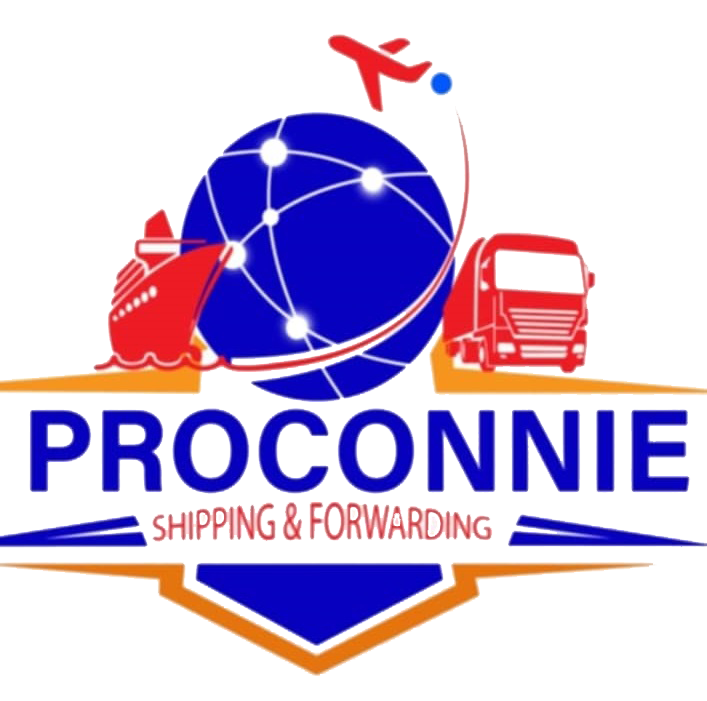Glossary
Glossary of Import and Export Terminology
Let’s simplify international trade. Our glossary of terms explains every trade-related acronym from AWB to WTO.
Still overwhelmed? Let Proconnie guide you through the process. Reach out to us today.
A
Air Waybill (AWB)
An Air Waybill (AWB) is a document produced by the freight company providing detailed shipment and tracking information.
B
Bill of Lading (BOL)
A Bill of Lading is a legal document issued by a carrier or its agent that serves as a receipt of goods and a contract of carriage, outlining the terms and conditions of transportation.
Bill of Materials (BOM)
A Bill of Materials is a detailed inventory of the raw materials, sub-assemblies, intermediate assemblies, sub-components, and parts required to manufacture a product.
C
Certificate of Conformity (CoC)
A Certificate of Conformity (CoC) is a mandatory importing document stipulating that a product meets minimum regulatory, technical, and safety requirements. This should not be confused with a Certificate of Origin (COO), which details the product’s origin country.
Certificate of Origin (COO)
A Certificate of Origin declares a product meets the Rules of Origin for a specific trade agreement. It specifies the product’s country of origin and is generally attested by a Chamber of Commerce. It differs from a Certificate of Conformity (CoC) which verifies that a product meets safety.
Commercial Invoice (CI)
In international trade, a Commercial Invoice is a customs document used as a declaration provided by the exporter of goods.
Customs Broker (CB)
A customs broker is a licensed professional or firm that facilitates and expedites the clearance of goods through customs.
Customs Clearance Documents (CCD)
Customs Clearance Documents are issued by Customs Brokers and authorities detailing how goods were cleared. Examples include a Packing List (PL), Commercial Invoice (CI), Certificate of Origin (COO), and Bill of Lading (BOL).
Commerce Control List (CCL)
This list within the EAR identifies specific dual-use items that require an export license due to their strategic value. Each item has an Export Control Commodity Number (ECCN).
D
Delivered Duty Paid (DDP)
DDP (Delivered Duty Paid) is an Incoterm delivery agreement where the shipper assumes maximum responsibility, including delivery to the agreed destination, clearing the goods, and paying customs duties and taxes.
Dual-Use Goods
Items that can be used for both civilian and military applications.
E
Export Administration Regulations (EAR)
Controlled by the U.S. Department of Commerce’s Bureau of Industry and Security (BIS), the EAR regulates the export of goods, technology, and information.
EAR99
A classification under the EAR indicating items not specifically controlled for export, generally encompassing low-tech consumer goods that usually do not require a license.
Export Control Classification Number (ECCN)
An ECCN is an alphanumeric identifier used in the Commerce Control List to categorize products for export control purposes.
Exporter of Record (EOR)
The EOR is the person or entity responsible for acquiring the correct documentation and ensuring compliance with export regulations.
F
Federal Security Bureau Notification (FSB)
An FSB Notification permits the movement of products with encryption capabilities into Russia and the EAEU.
Foreign Trade Zone (FTZ)
A designated area within a country where goods can be stored, processed, and traded with benefits like duty exemption or deferral to promote international trade.
Freight Forwarder (FF)
A freight forwarder arranges transport and prepares documentation for the movement of goods.
Free Trade Agreement (FTA)
An agreement between two or more countries that reduces or eliminates tariffs, quotas, and other trade barriers to facilitate the exchange of goods and services.
G
Goods and Services Tax (GST)
A tax similar to VAT, applied to goods and services in countries like Australia and India.
Graphics Processing Unit (GPU)
GPUs are specialized circuits for rapid execution of complex calculations, ideal for rendering graphics, accelerating machine learning, and video editing.
H
Harmonized System (HS)
An international nomenclature for classifying traded products, also known as HS codes.
Harmonized Tariff Schedule Code (HTS Code)
The HS or HTS assigns duties to traded products and provides international trade data.

